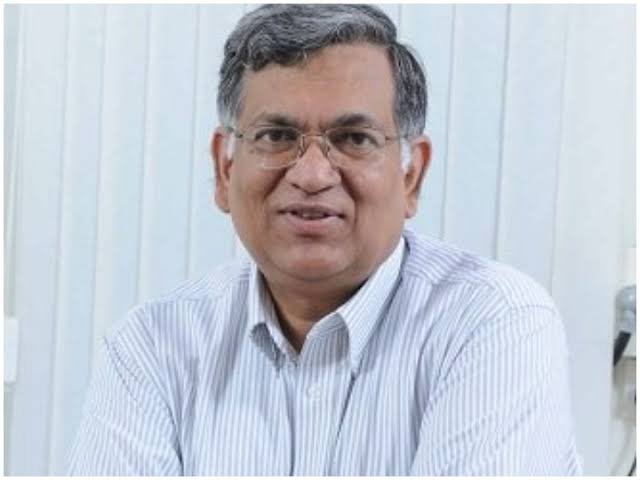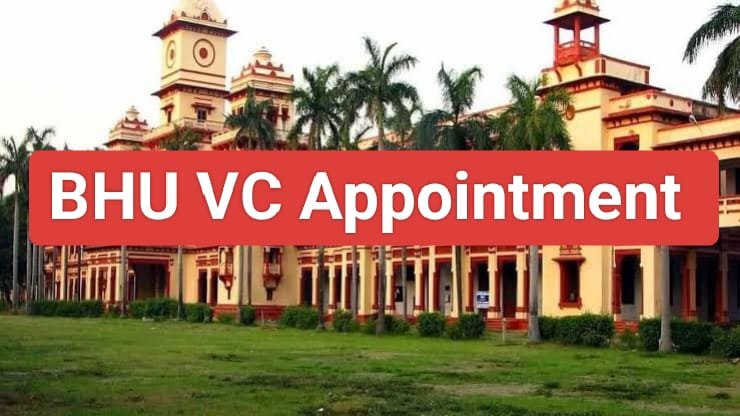Concerns Are Raised About the BHU VC Selection Process by the Recent Appointment
Sanjay Kumar’s appointment as Banaras Hindu University’s (BHU) rector and acting vice-chancellor (VC) has generated a great deal of controversy due to claims of legal non-compliance and procedural infractions. The complex procedures and governance described in the BHU Act for such appointments have come into sharper focus as a result of this development. The controversy highlights how crucial it is to follow institutional rules and keep appointments at esteemed educational institutions transparent.

Background: BHU’s Leadership Transition
Last week, Sanjay Kumar, the rector, took over the role from Sudhir Kumar Jain, who had served as BHU Vice-Chancellor. Citing compliance with the BHU Act, the university issued an official order confirming Kumar’s appointment to the position of in-charge VC. However, this change has drawn criticism from academics who contend that Kumar’s original appointment as rector was illegitimate, casting doubt on the validity of his new position as in-charge VC.
The BHU VC Appointment Rules Are at the Heart of the Debate
Senior faculty member and former BHU cardiology department head Om Shankar has openly expressed doubts about Kumar’s appointments’ procedural integrity. Shankar claims that the BHU Act, which provides a methodical and transparent procedure for choosing the rector and VC, seems to have been disregarded.
The BHU Act: Rector and VC Appointment Guidelines
The BHU Act stipulates:
Rector Appointment: The Vice-Chancellor’s recommendation must be followed by the Executive Council (EC) in order for the rector to be appointed.
Nomination Process: The VC may suggest an alternative candidate if the EC rejects the first one. If the second candidate is also rejected, the VC may send the Visitor both names. The Visitor may then either appoint one of the candidates or instruct the VC to suggest a different name.

Requirement of Full-Time Official: The rector must be a full-time official committed to the duties specified in the Act.
Supposed Infractions in the Scheduling Procedure
The Executive Council Is Not Active
For the last three years, BHU has reportedly been without an EC. In this situation, Sudhir Kumar Jain, the regular VC, used his emergency powers to make important choices, such as appointing Kumar as rector. Shankar contends that an EC meeting—which hasn’t taken place—should have approved these decisions.
Role Conflict
The conflict of roles in Kumar’s appointment process is another important point Shankar brought up. He claims that in violation of the governance framework required by the BHU Act, the VC served as both the nominating and approving authority.
Sanjay Kumar’s Dual Functions
Sanjay Kumar held the dual positions of director of the science faculty and rector during his tenure, which Shankar says goes against the BHU Act’s requirement that the rector be a full-time official.
Public Interest Litigation (PIL) and Legal Challenges
Harikesh Bahadur Singh, a resident of Varanasi, has filed a Public Interest Litigation (PIL) in the Allahabad High Court contesting the VC’s use of emergency powers without an EC. A division bench consisting of Chief Justice Arun Bhansali and Justice Vikas Budhwar was given the assurance by the government counsel during a hearing on January 8 that EC members would be appointed in a week. The timing and urgency of important decisions made without the EC are further called into question by this assurance.

Consequences for Transparency and Governance
The BHU VC appointment’s accusations and legal troubles bring to light serious problems with the university’s governance. Three years without an active EC has left a gap in institutional oversight, resulting in decisions that are currently being questioned for their legality and adherence to established guidelines.
The Visitor’s Function in the Scheduling Process
A key role in the selection of senior university officials is played by the Visitor, a role frequently occupied by the President of India. The Visitor’s intervention guarantees that appointments are made in accordance with institutional and legal frameworks in situations where the EC is unable to agree. The ongoing dispute, however, raises the possibility that Kumar’s case may not have made good use of this mechanism.
BHU VC Appointment: An Expanded View
The BHU VC appointment controversy is not a singular incident. It represents more general difficulties that Indian educational institutions face, such as:

- Institutional Autonomy vs. Governance: Finding a balance between giving universities autonomy and making sure governance norms are followed.
- Emergency Powers: When high-ranking officials utilize emergency powers, they can circumvent standard checks and balances and possibly abuse them.
- Stakeholder Trust: Ensuring equitable and transparent administrative procedures to preserve trust among alumni, instructors, and students.
Why Openness Is Important
Processes like the BHU VC appointment must be transparent because academic rigor and traditions are highly valued at places like BHU. When rules are unclear or not followed, it can result in:
Erosion of Credibility: Damage to the school’s standing in the academic community.
Internal Conflicts: Arguments between administrative and faculty personnel.
Legal Entanglements: Spending money on drawn-out court cases.
Resolving the Problems: Reform Suggestions
The following actions can be taken to prevent such controversies and restore trust in the BHU VC appointment process:
Restoring the Executive Council as soon as possible and making sure it actively participates in important decisions are two ways to strengthen the role of the EC.

Emergency Powers Clarification: Outlining the extent and restrictions of emergency powers to guard against possible abuse.
Involving Stakeholders: Including alumni, instructors, and students in decision-making procedures to promote trust and a sense of ownership.
Regular Reviews: Examining administrative procedures on a regular basis to make sure they adhere to the BHU Act and other rules.
Enhanced Visitor Oversight: Making use of the Visitor’s power to offer direction and supervision during crucial meetings and policy decisions.
Final Thoughts: Preserving Institutional Honesty
The BHU VC appointment controversy serves as a reminder of how crucial it is to follow established protocols and preserve openness in decision-making. In addition to being required by law, maintaining adherence to the BHU Act is crucial for a university of BHU’s caliber in order to uphold its reputation for excellence and reliability.
BHU can demonstrate its dedication to institutional integrity and serve as a model for other universities dealing with comparable issues by resolving the issues brought up and implementing corrective measures. In addition to restoring trust among interested parties, the resolution of this problem will solidify BHU’s standing as a leader in academic and administrative excellence.
The main facets of the BHU VC appointment continue to be the focus of attention as the situation develops, guaranteeing that the choices made serve the interests of the university and its community.







